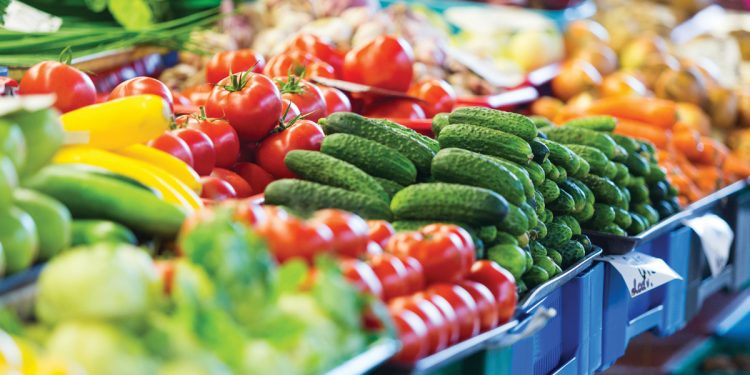Last week at the grocery, I asked my 20-something daughter to pick out some chips. She surprised me with, “I can’t eat that junk anymore, Mom. I’d rather just have some fruit.” Pouting, I said, “Fine. Grab some Granny Smiths.” I guess it’s time to give up the Cheetos, but it sure is hard to be reminded that I’m not as young as I used to be.
As we age, our bodies change as much on the inside as we notice on the outside. Our brains, muscles, and organs need more nutrients to function optimally. We don’t always get those nutrients from the foods we choose, and natural changes in appetite and digestion make it important to stay mindful of what we are eating.
There are “smart” foods we can eat to keep our brains healthy, and maybe even help with memory. Blueberries can help with motor skills and our ability to learn; deep-water fish, like salmon, have those important omega 3’s to reduce inflammation in the body; nuts and seeds give us the vitamin E that helps reduce cognitive decline; and avocados are a fatty fruit, but not in a bad way. They can actually help lower blood pressure. Whole grains such as oatmeal or brown rice can reduce the risk of heart disease. Beans are good for helping with maintaining glucose levels; pomegranate juice is a great antioxidant (the fruit is just as good, but there are lots of seeds). Freshly brewed tea, either hot or cold, can enhance memory and increases blood flow, and tea’s antioxidants can even help with focus and mood. It has caffeine in it, though, so be mindful of that.
All the smart foods in the world can’t help us, though, if we encounter barriers. Dental problems can make it a real struggle to eat properly. When it’s tough to chew, it’s easy to just stop eating or to limit our food selections to a few soft choices. If that’s the case for you, talk to your dentist. As we age, sometimes our saliva production decreases, making it hard to swallow. Remember to drink plenty of liquids while you are eating to counteract that. What if your food doesn’t taste quite like it used to? Try adding herbs and spices. Not necessarily salt, as that can raise blood pressure, but there are so many delicious options that can enhance the flavors. Emotional changes have an effect, too. If you’re sad or depressed, you may lose your appetite. Talk to your doctor if this happens. And sometimes, we just don’t feel hungry. When this happens, increase physical activity a bit to stimulate appetite.
Some people just do not want to eat alone. We had an Austrian neighbor who was in her 90s who found a solution to this problem – and her solution was a great blessing for my family, too! She loves cooking authentic native dishes, but doesn’t enjoy cooking for one. One night each week, she would suggest a side dish for my family to prepare and we visited her to enjoy a delicious meal – and stories of her life. She even taught me how to make a few dishes! There are other things you can do, too, if you prefer company and conversation while dining. Invite friends over for pot luck! The Munday Activity Center and other senior centers offer lunches on a donation-only basis. They also offer a nutrition risk assessment to help you evaluate your diet. What a great way to enjoy a meal and conversation without having to cook or do the dishes!
I never have any trouble getting enough calories, but some people do. If that is the case, try some healthy snacks. If you’re losing too much weight, talk to your doctor about some protein drinks or energy supplements. Dieticians are a tremendous resource, too, for helping you develop a plan that works best for your specific needs. Your physician’s office can help make those connections for you.
Have physical problems that make eating difficult? Your physician may refer you to an occupational therapist who can work with you. There are assistive devices, too, which can help one eat independently.
Not thirsty? You’re not alone, but it’s important to stay hydrated. Drink frequently, but avoid liquids with excess sugars.
Medications and some medical treatments can make food taste differently, reducing the appeal. Tell your doctor if that is happening; they may be able to offer alternatives.
Know how much you should be eating. You can find a portion guide online or at your doctor or dietician’s office. When I eat out, often I’ll ask the server to box up half the meal before they even bring it out to me.
Aging isn’t for sissies, a good friend used to say. So many changes! Digestion can slow down, muscles become weaker. Our nutrition needs stay the same, but our caloric needs decrease. It almost seems impossible – but it isn’t! With proper nutrition, we can maintain a healthy immune system, keep our muscle mass, and help to maintain healthy brain function. Discuss with your physician the changes you’re seeing. Often they can introduce the dietary supplements your body is craving over and above what you are able to get through your food alone. For me, I guess that also means listening to my daughter, and leaving the Funyuns on the shelf.
Dana Peveler is the executive director of the Munday Activity Center, which provides services, support and resources for seniors age 60 and older in Owensboro-Daviess County and the surrounding region.










